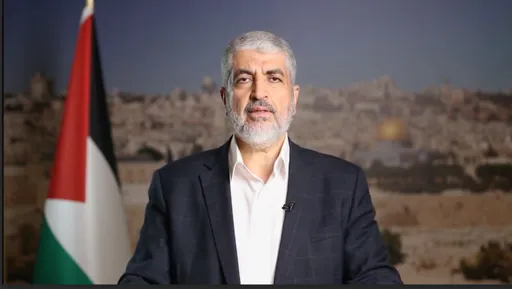World leaders should declare states of "climate emergency" in their countries to spur action to avoid catastrophic global warming, UN Secretary-General Antonio Guterres has said in opening remarks to a climate summit.
More than 70 world leaders were due to address the one-day virtual gathering on Saturday aimed at building momentum for much steeper cuts in planet-warming emissions on the fifth anniversary of the 2015 Paris climate accord.
"Can anybody still deny that we are facing a dramatic emergency?" Guterres said via video.
"That is why today, I call on all leaders worldwide to declare a State of Climate Emergency in their countries until carbon neutrality is reached."
READ MORE: Doomsday Clock closer to midnight than ever
Hope of low-carbon future
Guterres said economic recovery packages launched in the wake of the coronavirus pandemic represented an opportunity to accelerate the transition to a low-carbon future - but warned this was not happening fast enough.
"So far, the members of the G20 are spending 50 percent more in their stimulus and rescue packages on sectors linked to fossil fuel production and consumption, than on low-carbon energy," Guterres said.
"This is unacceptable. The trillions of dollars needed for Covid recovery is money that we are borrowing from future generations," he said. "We cannot use these resources to lock in policies that burden future generations with a mountain of debt on a broken planet."
"Toxic teacosy"
Summit co-host Britain announced it would pledge to end direct government support for overseas fossil fuel projects at the summit, aiming to spur similar moves by other countries to accelerate a shift to cleaner energy.
British Prime Minister Boris Johnson told the summit that countries could work together to radically cut dependence on fossil fuels, change agricultural practices, and reverse the process by which for centuries humanity has been quilting the planet in "a toxic teacosy" of greenhouse gases.
"And at the same time, we can create hundreds of thousands of jobs, millions of jobs, across the planet as we collectively recover from coronavirus," Johnson said.
Diplomats are watching summit speeches for any signs of significantly stronger climate pledges from countries including China, India, and Japan.
READ MORE: EU leaders agree to cut greenhouse gas emissions by 55% by end of decade
China, India stress climate commitments
China and India edged forward in their commitment to lower carbon pollution, issuing a string of promises that experts said fell short of action needed from the two emerging giants.
President Xi Jinping told the summit that China would work to reduce the intensity of its emissions by 65 percent by 2030, compared with 2005 levels.
Xi promised to "aim to peak carbon dioxide emissions before 2030", repeating a pledge he made in September, when the world's largest emitter said it would achieve net-zero emissions by 2060.
Indian Prime Minister Narendra Modi said his country, the fourth-largest emitter, would seek to have 450 gigawatts of renewable capacity installed by 2030.
He said that by 2047, the centenary of independence from Britain, India "will not only meet its own targets but will also exceed your expectations".
But to the disappointment of campaigners, India has yet to set a date for when it hopes to achieve carbon neutrality.
READ MORE: Climate change threatens red chilli harvest in Pakistan's Sindh province
A race against time
Experts say commitments put forward by the international community have already improved the long-term outlook on climate change, making the worst-case scenarios less likely by the end of the century.
But wildfires in the Amazon, Australia, and America, floods in Bangladesh and East Africa, and record temperatures in the Arctic have highlighted the impact an increase of 1.2 degrees Celsius since pre-industrial times is already having on the planet.
The Paris agreement aims to cap global warming at well under 2 Celsius ideally no more than 1.5 Celsius, by the end of the century.
Achieving this will require a phasing-out of fossil fuels and better protection for the world's carbon-soaking forests, wetlands, and oceans.
The United States, which quit the Paris accord under President Donald Trump, won't attend the event at the federal level. But Michigan Governor Gretchen Whitmer, Governor Charlie Baker of Massachusetts, and US business leaders, such as Apple’s chief executive Tim Cook, will take part.
President-elect Joe Biden has pledged to rejoin the pact and put the US on course to reduce its emissions to net-zero by 2050.























